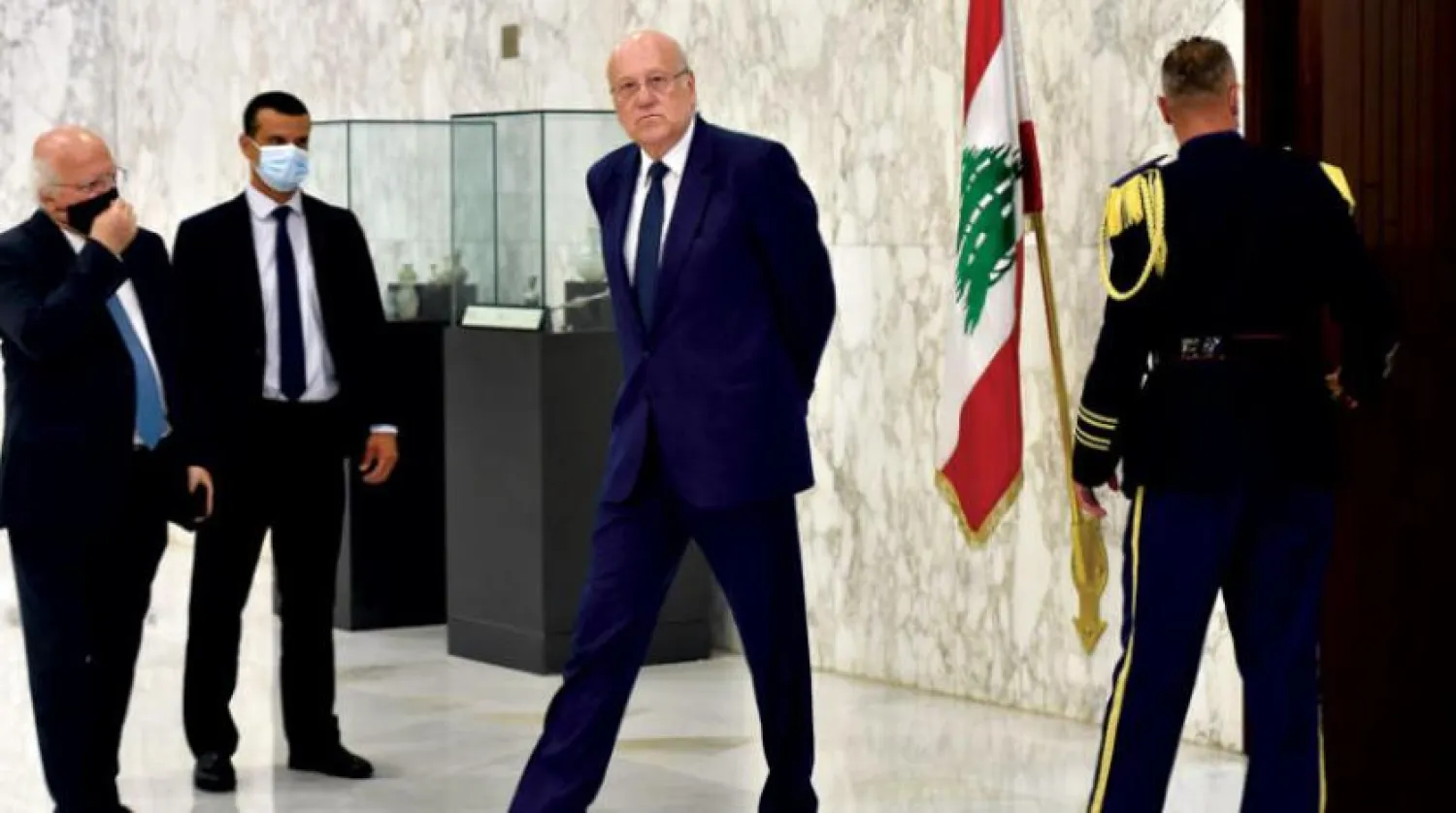France and the United States are exerting “soft pressure” on Lebanese officials in order to speed up government formation.
The West is deeply alarmed by the current unprecedented collapse of Lebanon and the suffering of its people that has affected all aspects of their lives and is threatening to have dangerous repercussions.
“The situation can no longer be postponed, and every day that passes without an effective government makes things more difficult,” western diplomats in Lebanon told Asharq Al-Awsat.
Compounding the diplomats’ concerns is the caretaker government’s failure to tackle any aspect of the situation, noting Prime Minister Hassan Diab’s refusal to convene the cabinet in spite of the alarming situation.
“The caretaker government cannot do anything to address the situation, especially since Diab was clear in rejecting meetings by the caretaker government in spite of the compelling circumstances in Lebanon. We have advised him more than once to make moves and do something,” said the diplomats.
“If the current situation does not justify a meeting by the [caretaker] government, what will?”
“There is no reason why the government should not be formed today before tomorrow,” a senior western diplomat told Asharq Al-Awsat. “We are no longer looking for perfection in the new government. After more than a year without a government, we know that there will be some trade-offs that will be made in order to form the government.”
“The new government is not required to do much. Its life will relatively be short, but doing three or four things is enough, the first of which is to negotiate with the International Monetary Fund (IMF), as it is the only side that can provide the liquidity required to salvage the financial situation. This must be accompanied by advice from the IMF on how to manage matters to end the crisis.”
“We have not lowered our standards in terms of the government, but an ‘imperfect’ government is undoubtedly better than no government,” added the source.
As usual, Hezbollah is the main obstacle hindering the West’s dealings with Lebanese governments. The Americans, specifically, refuse to cooperate with any ministry that is held by the party or whose minister is named by it.
The best evidence of this occurred at the height of the coronavirus pandemic when the Americans refused to deal with Health Minister Hamad Hassan, who is loyal to the party, when the US attempted to offer direct aid to some private hospitals and associations. The same thing may happen in a new government whose health portfolio is again held by Hezbollah.
Moreover, the source stressed the need for elections to be held on time in Lebanon. “The three elections (parliamentary, presidential and municipal) must take place as scheduled, and this was confirmed by the International Support Group for Lebanon, with the express and remarkable approval of Russia and China, which usually avoid getting involved in any controversial issues.”
“However, the lack of action by the Ministry of Interior to launch the pre-election processes is not reassuring. The question of whether a new election law is needed is an open one. Lebanon is the only country in the world I know of in which a new law seems to be passed every time elections are held.”
Furthermore, the source said: “The Public Tender Law, which was approved by a large majority in Parliament, is very important for Lebanon, but we were surprised that Gebran Bassil and others objected to it. We very much hope that they will not prevent the issuance of this law and its implementation, which is critical for rooting out corruption and building more transparency into the government tendering process.”
With every “carrot” that is waved by western diplomats to Lebanese officials, there remains the “stick” that they wave to those obstructing the formation of the government.
“The continuation of the existing obstructions opens the door to different ways to address these obstructions,” said the source. “The French have some ability to move to impose sanctions, and American law gives the US administration similar capabilities that we will not hesitate to use to curb the obstructionists. Sanctions are not a goal in themselves. Sanctions are useful as long as they are not imposed, but when they are, their effect will have expired. For this reason, we hope that the threat of sanctions will be a great motivation for Lebanese officials to facilitate the formation of a government.”
Asharq Al-Awsat has learned that head of the Free Patriotic Movement MP Gebran Bassil has contacted American law firms to tackle his objection to sanctions imposed on him by the US Treasury. “Lifting the sanction from persons who are already under sanctions, as in the case of Gebran Bassil, is a complex process and does not take place without sufficient evidence to impose or lift the sanctions. Washington had sufficient and compelling evidence in the case of Minister Bassil,” said the source.
“He [Bassil] has the legal right to oppose this measure before the American courts, and we have heard that he is communicating with law firms for this purpose, but this means that the evidence and documents on which we relied will become ‘public’ in the sense that they are publishable.”









